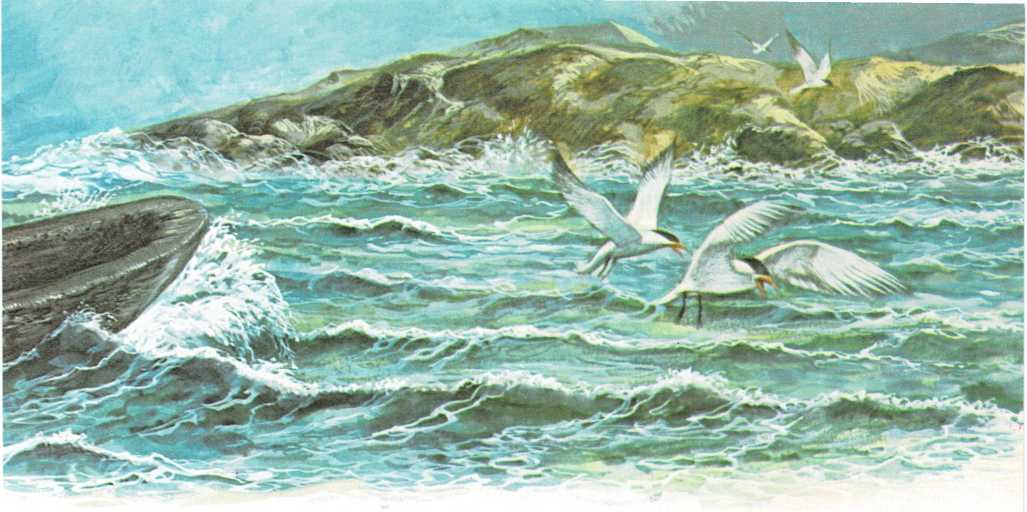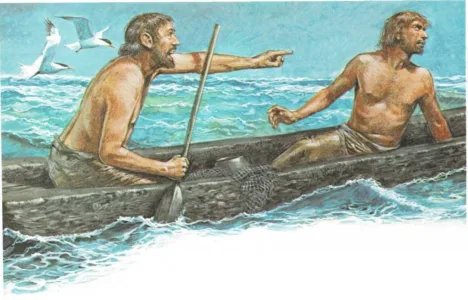
The first sea voyagers
For prehistoric people, the sea was a place where plenty of food could
be found. They could wade in shallow water along the shore to gather
clams and other shellfish. But they must certainly have wondered about
the vast, mysterious place where this food came from. What other kinds
of creatures lived in it? Did the water go on forever, or were there
other lands beyond it? What was beneath it?
Finally, someone ventured out on the sea. People had probably seen
floating logs, so the first \”boat” may well have been several logs tied
together with vines or strips of leather. Or, perhaps it was a large
log, hollowed out so that one or two people could sit in it. But it was
the first of all the ships that would sail the seas in the thousands of
years to come.
People probably first used rafts and boats just to go a little way from
shore in order to catch fish. But there must have come a day when two or
three fishermen ventured out of

sight of shore, or were blown out to sea by a storm. Perhaps they saw a
distant island and paddled toward it. They would have been excited, and
a bit afraid, because this was a new land. They had become explorers,
using the sea as a road to a new place.
Long ago, people probably found new places by accident. Later, if these
places were good places to live, people moved there on purpose. The sea
became a way for people to spread out across the world.
The first sea voyage we know of took place more than thirty thousand
years ago. People from somewhere in Southeast Asia crossed many miles of
ocean to Australia, where no one then lived. We don’t know whether these
voyagers went to Australia on purpose. We don’t know how they traveled,
but they probably used rafts. We also don’t know how long the voyage
took. We do know that these people were the ancestors of the Aborigines,
or native people, that European explorers met in Australia thousands of
years later.

